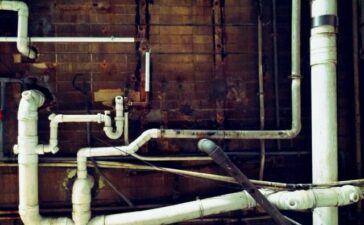Breathing easily wherever you go has become quite a challenge with the airborne diseases and rising air pollution.
The growing demand for cleaner air has led to various comprehensive Air Purifier Reviews available today, which cover an evaluation across brands and price ranges and, more importantly, performance.
This is why we’ll be discussing the different kinds of air purifiers you will possibly come across.
We’ll also discuss how each may be beneficial to your specific needs, so you may consider these points before purchasing your own air purifier.
Electronic or Central Air Cleaner
This is an air cleaner that is usually attached to your furnace or your air conditioning system; thus, it cleans the whole house.
It is perfect for cleaning a centralized AC system wherein all air in the house is coming from a single source.
It’s also called an electronic cleaner because it uses static electricity to charge and then trap air particles into its HEPA filters.
This type of air purifier works best against dust, allergens, fumes, smoke, viruses, and bacteria.
However, the big challenge that comes with this type of cleaner is that since it is a central home system, it needs to be professionally installed and maintained.
It also requires changing the filters every month.
Activated Carbon Air Purifier
This air purifier works best in eliminating smoke, fumes, and odors; thus, it works best in homes with people who are sensitive to different smells.
You can also use this filter for areas where you expect little to no foul odors.
Currently, this is the only air cleaner targeted at odor elimination; thus, it doesn’t work as much against pollen, dust, bacteria, and viruses.
Ultraviolet Air Purifier
Some air purifiers that can be easily installed at home make use of ultraviolet light as an added defense against viruses and bacteria.
This same technology was originally used in hospitals to prevent contamination by airborne diseases. It is also proven to kill molds and germs.
A UV air purifier, which usually has a built-in filter, has two functions and, therefore, can clean out the air of most particles other than odor.
There are, however, some caution about using the UV Mode, which strongly recommends that you only turn it on when no one is in the room.
In terms of maintenance, the UV bulbs will need to be replaced as frequently as every year, while the filters might require monthly replacement.
Ionic Air Purifier
Because this air purifier doesn’t have any additional mechanism other than ion production, this is the air purifier that is ideal for a quiet home or for your bedroom.
The technology behind it is in its ability to emit negatively charged ions that stick to particles in the air and weigh them down until they fall to the ground like dust.
Some ionic air purifiers also have built-in filters that suck in the air before charging it so that the particles stick to the filters instead of simply falling to the ground.
The latest tech in this kind of air purifier has a built-in cleaning system which makes maintenance easier for you.
This purifier is proven to eliminate practically any particle in the air except for odor so that it does target allergens, dust, viruses, bacteria, and molds alike.
If you’re looking for the simplest one of this kind, then just take the extra measure to sweep or vacuum your floor, especially the area near the purifier where the particles that have turned to dust might have collected.
HEPA Air Purifier
This purifier is perfect for targeting your pet’s pollen, dander from indoor plants, the average mold, and regular dust.
If you just want cleaner air for your house, then this is a purifier you can look into as it usually costs less than an ionic or UV purifier.
The filters need replacing every month but can be easily installed as well.
However, no true HEPA filter to date is capable of trapping smaller particles like that of airborne bacteria and viruses, so it isn’t usually recommended for targeting those areas.
These days, we truly see the need for cleaner air which is even more felt at home where, more often than not, we deal with enclosed spaces that are prone to mold, allergens, possible viruses, and bacteria.
If you’re living with people struggling with asthma or rhinitis, you should definitely look into getting the right air purifier to meet their needs.
Additionally, with the pandemic and awareness of airborne diseases, it is an extra measure to safeguard the air you breathe at home by installing an air purifier, especially since most of us no longer wear masks in our own homes.
Whatever air purifier you’ll decide on will be an investment towards a safer environment for you and those around you.






